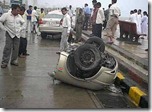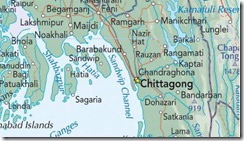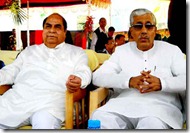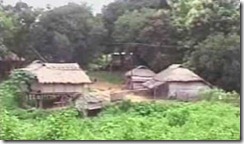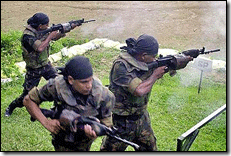 Agartala, Aug 31 : A Vigyan Gram, or a science village, is to come up on the outskirts of Tripura's capital, complete with a museum, library, planetarium, botanical garden, bird sanctuary and other attractions to popularise science among the masses.
Agartala, Aug 31 : A Vigyan Gram, or a science village, is to come up on the outskirts of Tripura's capital, complete with a museum, library, planetarium, botanical garden, bird sanctuary and other attractions to popularise science among the masses.
The Vigyan Gram, to be modelled on the lines of science cities in various cities in India, would be set up at a cost of Rs.35 crore in western Tripura's Badharghat, a village on the outskirts of Agartala.
The National Council of Science Museums (SCSM), an autonomous society under the ministry of culture, has extended all out supports in setting up of the 'science village',' Tripura Science and Environment Minister Joy Gobinda Deb Roy told IANS in an interview.
The Tripura State Council for Science and Technology (TSCST), an autonomous body under the state's government's science, technology and environment department is the nodal authority to look after the management of the proposed science village, which would be a regional level science hub.
Deb Roy said: 'The science village will have a museum, library, planetarium, botanical garden, heritage park, bird sanctuary, aquarium, auditorium, children's park and a laboratory.'
'It would also have an exhibition zone, educational demonstration arrangement, playing zone for children and science book stalls.'
Already 9.20 acres of land has been earmarked for the science village, which is scheduled to open in the next 33 months, when the first phase gets completed. The entire Vigyan Gram would be completed by four years.
'The science village project seeks to develop awareness among people, the literacy and outlook of young students and people, specifically with respect to science,' the minister said, adding that it will help people to learn about science and scientific works through recreational activities and promote research works. The project will also contribute towards generating employment opportunities and promote eco-tourism.
According to the project report, the Vigyan Gram is envisaged to attract students and science enthusiasts from Bangladesh, especially with the government of India planning to enhance connectivity with the neighbouring country by setting up rail, road and water ways links through the northeastern state.
'The Vigyan Gram would attract students, science enthusiasts, teachers, researchers and tourists from different parts of India and neighbouring countries,' the project report said.
The report also states: 'The outreach programmes of the Vigyan Gram are likely to change the mindset of terrorists and surrendered militants by imparting knowledge on various scientific issues pertaining to day to day life and making a habit of logical belief.'
Minister Deb Roy said the Vigyan Gram would also offer 'excellent non-formal educational facility' to supplement the formal science education imparted in educational institutions.
'Setting up of Vigyan Gram would be an integrated approach towards free-choice learning of science for all concerned,' the minister said adding that the main objectives of setting up of the Vigyan Gram includes, to grow, nurture and stimulate a culture of science and develop a scientific temper among the people in the northeastern region and to promote innovative and experimental activities through a hands-on learning process.
'The Vigyan Gram would also help to promote and exhibit interaction of science, technology, energy and environment with human life and to enhance scientific awareness among the people at large and to showcase the latest scientific and technological breakthroughs.'
(Sujit Chakraborty can be contacted at sujit.c@ians.in)
 Agartala, Sep 30 : Authorities have issued alert among both health establishments and citizens following spread of Hepatitis A virus in Agartala and its adjacent areas over the past two months.
Agartala, Sep 30 : Authorities have issued alert among both health establishments and citizens following spread of Hepatitis A virus in Agartala and its adjacent areas over the past two months.





